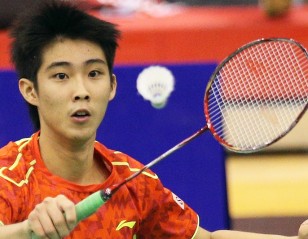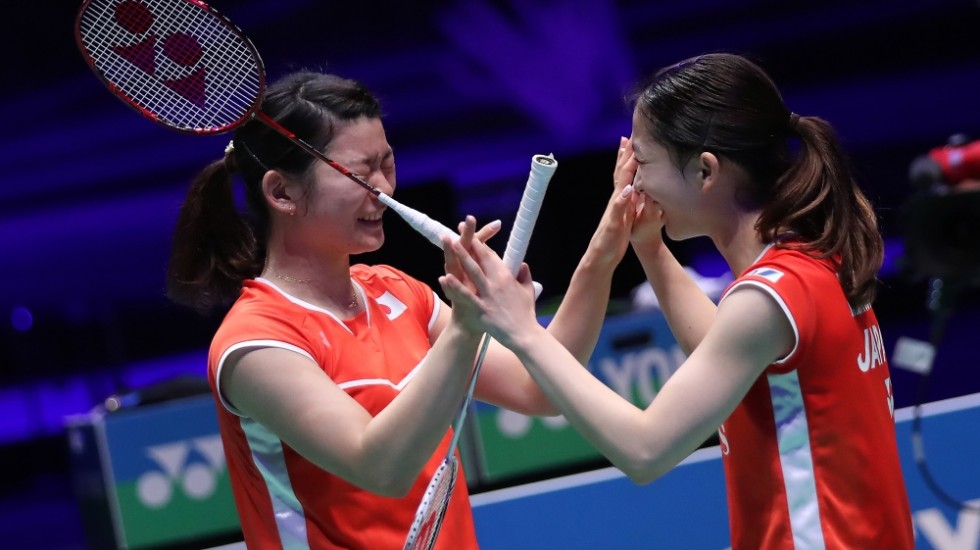
TOTAL BWF Uber Cup Preview: China, Japan Hold the Aces
Thirteen titles and looking good for a fourteenth. It would take a seismic upset for China to be denied a 14th Uber Cup title that would make them the most successful team – men or women – in badminton. At the moment, they are tied with Indonesia’s men (Thomas Cup) for the most number of team titles.
But even a powerful team like China would be wary of things not going to script. The shock of 2010 would still be fresh in the minds of coaching staff – Korea had defied predictions to upset the Chinese in Kuala Lumpur, which brought to an end China’s unbeaten run since 1998 that won them six successive titles.
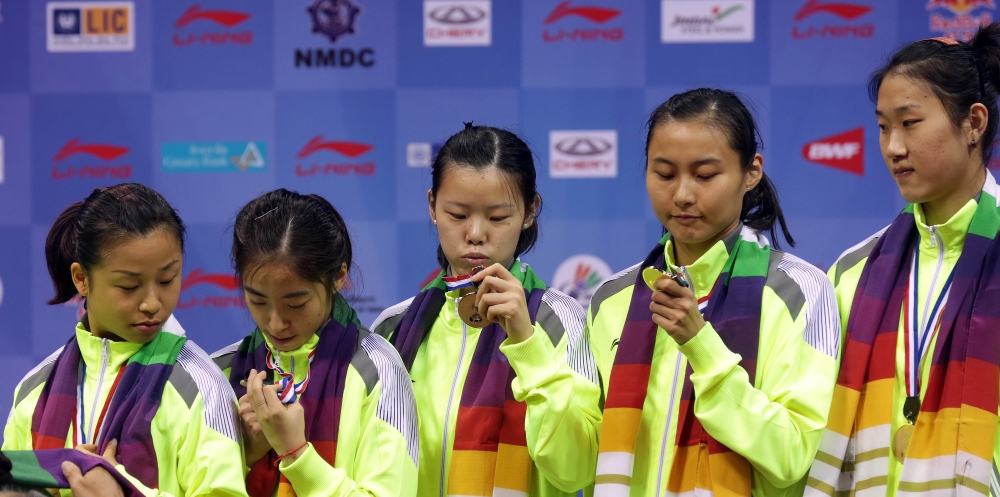
Only one team before Korea had stopped the Chinese since their Uber Cup debut in 1984, and that was Susi Susanti-led Indonesia, in 1994 and 1996.
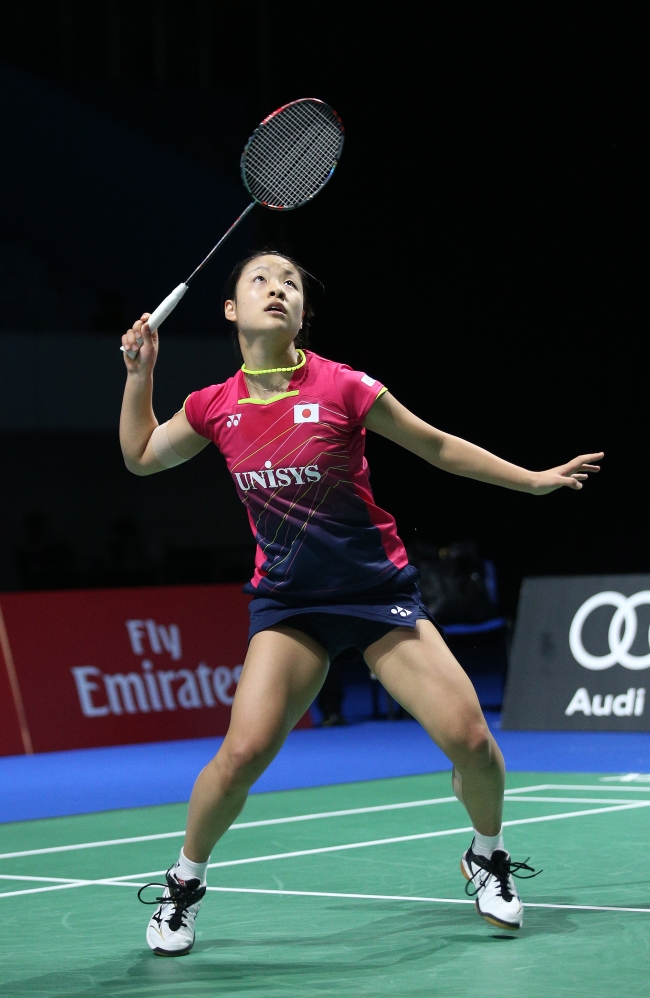 The 2016 Chinese team looks every bit as formidable as their legendary squads of the 1980s and 2000s. The top singles players appear to have set aside their setbacks of last year and early this year – Wang Yihan’s victory at the Badminton Asia Championships and Li Xuerui’s smooth run to the final showcased Chinese might at its best. Singles options in Wang Shixian and Sun Yu, and doubles strength in Olympic and World champions Tian Qing/Zhao Yunlei and Celcom Axiata Malaysia Open champions Yu Yang/Tang Yuanting, besides Chen Qingchen and Tang Jinhua, leave the hosts with no apparent weakness.
The 2016 Chinese team looks every bit as formidable as their legendary squads of the 1980s and 2000s. The top singles players appear to have set aside their setbacks of last year and early this year – Wang Yihan’s victory at the Badminton Asia Championships and Li Xuerui’s smooth run to the final showcased Chinese might at its best. Singles options in Wang Shixian and Sun Yu, and doubles strength in Olympic and World champions Tian Qing/Zhao Yunlei and Celcom Axiata Malaysia Open champions Yu Yang/Tang Yuanting, besides Chen Qingchen and Tang Jinhua, leave the hosts with no apparent weakness.
Yet, Japan have a squad that, player for player, can prove a stumbling block to China’s aspirations for a third home title. Nozomi Okuhara’s successes, with World Superseries wins in Dubai and Birmingham, makes her the ideal spearhead to ensure a first point. Second and third singles players Akane Yamaguchi and Sayaka Sato can be difficult to beat, while the doubles teams of Misaki Matsutomo/Ayaka Takahashi and Naoko Fukuman/Kurumi Yonao are up there with the best. Most signs point to a repeat of the 2014 Uber Cup final between China and Japan.
Japan can take heart from their past record. The Japanese made their mark in the 1965-66 Uber Cup, surprising defending champions USA in the final, and would go on to capture four more titles. With the exception of 1974-75, the Japanese were the pre-eminent power in women’s badminton from the mid-Sixties to the early Eighties. Few would bet against Okuhara and her compatriots being able to retrieve the cup for Japan after 35 years.
The Chinese are expected to easily top Group A; the battle for second place in the group could be a bitter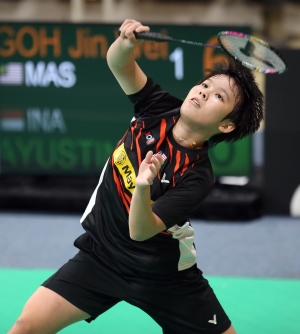 one. Denmark and Malaysia appear to be evenly matched and, on paper at least, ahead of Carolina Marin-led Spain. For Malaysia, much will depend on how well World Junior champion Goh Jin Wei acquits herself at this level; the youngster did perform impressively at her last outing in the Badminton Asia Championships.
one. Denmark and Malaysia appear to be evenly matched and, on paper at least, ahead of Carolina Marin-led Spain. For Malaysia, much will depend on how well World Junior champion Goh Jin Wei acquits herself at this level; the youngster did perform impressively at her last outing in the Badminton Asia Championships.
Denmark have a clutch of young singles players to back their doubles stalwarts Christinna Pedersen/Kamilla Rytter Juhl, and their performance here could be an indication of their progress back to the glory days when they were title contenders. It’s been over 15 years since the last Danish team, led by Camilla Martin, made the final.
Alongside Japan in Group D are India, Australia and Germany. India, with Saina Nehwal, PV Sindhu and Jwala Gutta/Ashwini Ponnappa, are expected to make the quarter-finals with Japan.
Group B consists of Korea, Chinese Taipei, Mauritius and USA. Korea have a balanced squad, with Sung Ji Hyun, Bae Yeon Ju and three strong doubles pairs to choose from. Chinese Taipei too are no pushovers.
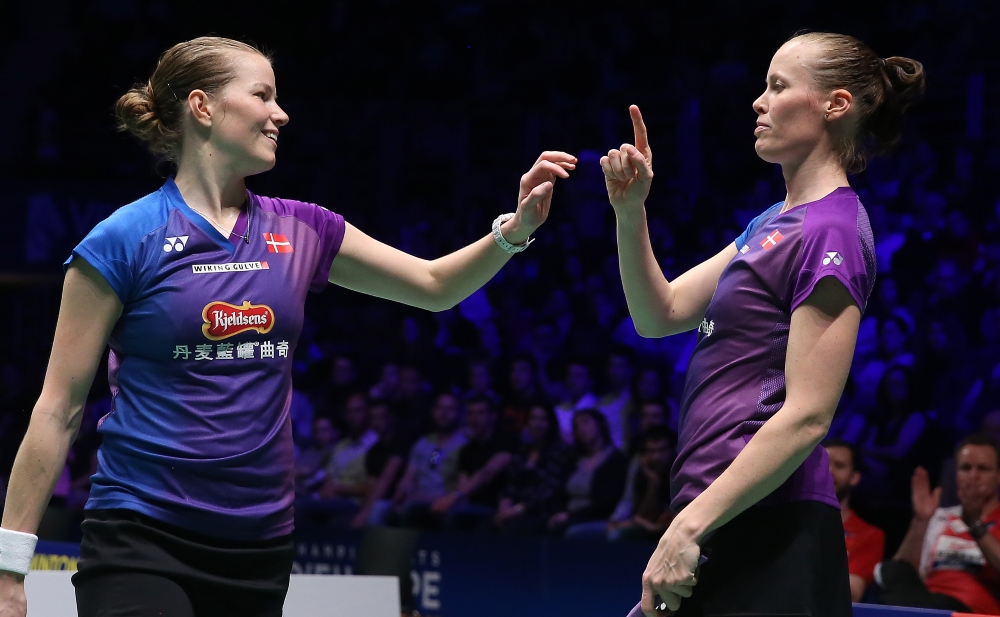
Group C, with Thailand, Indonesia, Bulgaria and Hong Kong, is the most evenly-matched. Thailand’s depth in singles (Ratchanok Intanon, Busanan Ongbumrungpan and Nitchaon Jindapol) backed by strong doubles (Puttita Supajirakul/Sapsiree Taerattanachai) gives them the edge, but Indonesia and Hong Kong too have the balance in singles and doubles to go far in the event.
Groups:
Uber Cup:
Group A: China, Denmark, Spain, Malaysia
Group B: Korea, Chinese Taipei, Mauritius, USA
Group C: Thailand, Indonesia, Bulgaria, Hong Kong China
Group D: Japan, India, Australia, Germany
Thomas & Uber Cup News
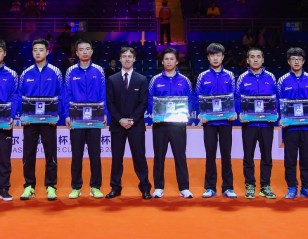
Li-Ning – A Stringing Success! 20 June 2016
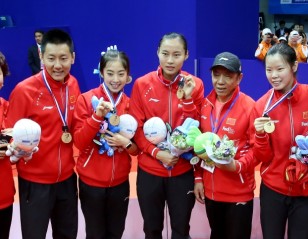
China Brook No Challenge – Uber Cup Review 27 May 2016
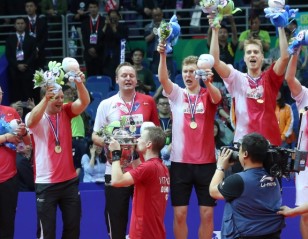
A Momentous Event for Europe – Thomas Cup Review 25 May 2016
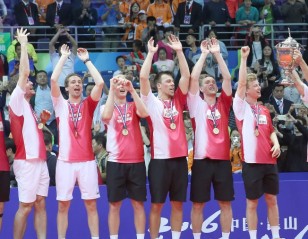
Denmark Crowned Kings of the World: TOTAL BWF Thomas & Uber Cup... 22 May 2016
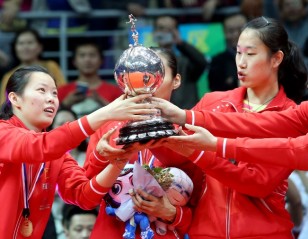
Title No.14 for China – TOTAL BWF Thomas & Uber Cup Finals... 21 May 2016

Denmark Fly High – Semi-finals Session 2: TOTAL BWF Thomas & Uber... 21 May 2016
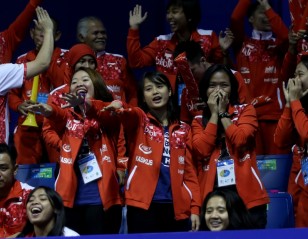
Indonesia Storm into Final – Semi-finals Session 1: TOTAL BWF Thomas &... 20 May 2016
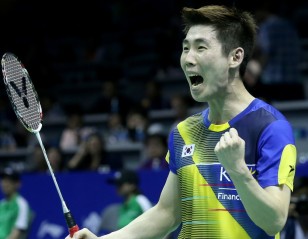
Korea Shock China; Japan Out – Quarter-finals Session 2: TOTAL BWF Thomas... 20 May 2016
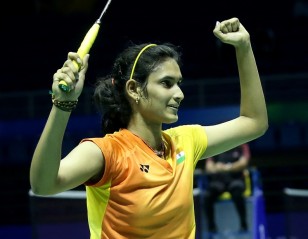
Shivani Aces it for India – Quarter-finals Session 1: TOTAL BWF Thomas... 19 May 2016
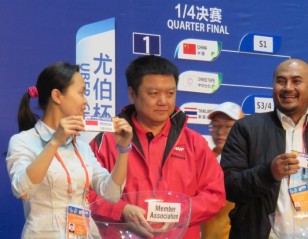
China Draw Korea in Thomas Cup Quarter-finals 19 May 2016
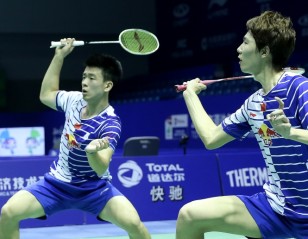
China Blow Away Japan – Day 4 Session 3: TOTAL BWF Thomas... 18 May 2016
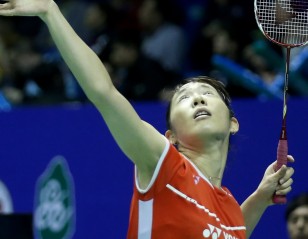
Japan Struggle to Beat India – Day 4 Session 2: TOTAL BWF... 18 May 2016
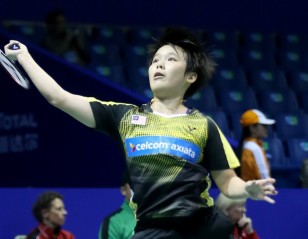
Denmark Top Group D – Day 4 Session 1: TOTAL BWF Thomas... 18 May 2016
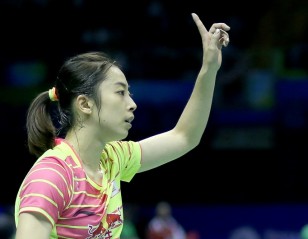
Indonesia Outclass Thailand – Day 3 Session 3: TOTAL BWF Thomas &... 17 May 2016
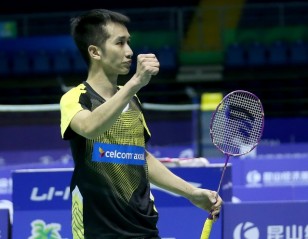
Korea Singed by Malaysian Singles – Day 3 Session 2: TOTAL BWF... 17 May 2016
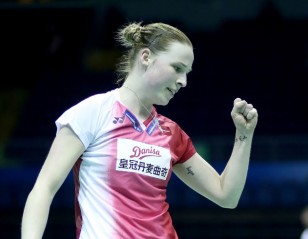
Kjaersfeldt, Madsen Drive Danish Success – Day 3 Session 1: TOTAL BWF... 17 May 2016
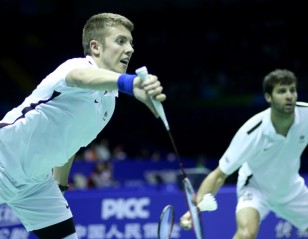
China Down Battling French – Day 2 Session 3: TOTAL BWF Thomas... 16 May 2016
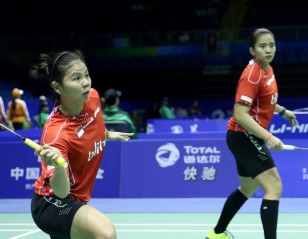
Indonesia Prevail Over Hong Kong – Day 2 Session 2: TOTAL BWF... 16 May 2016
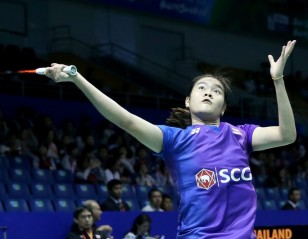
Thailand Continue to Cruise – Day 2 Session 1: TOTAL BWF Thomas... 16 May 2016
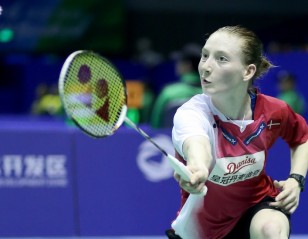
Madsen Swings it for Denmark – Day 1 Session 3: TOTAL BWF... 15 May 2016

Japan Shaken by Inspired France – Day 1 Session 2: TOTAL BWF... 15 May 2016
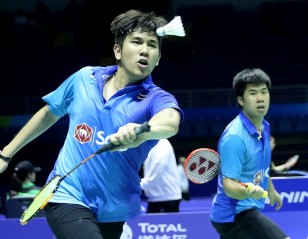
Strong Start by Thailand – Day 1 Session 1: TOTAL BWF Thomas... 15 May 2016
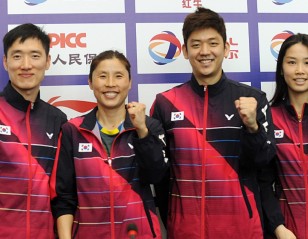
TOTAL BWF Thomas & Uber Cup Finals 2016: Opening Salvos Fired as... 14 May 2016

TOTAL BWF Thomas Cup Preview: Can Denmark Break the Jinx? 11 May 2016
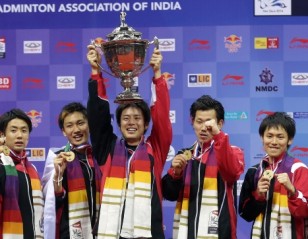
Japan Face French Obstacle in Thomas Cup Opener 19 April 2016
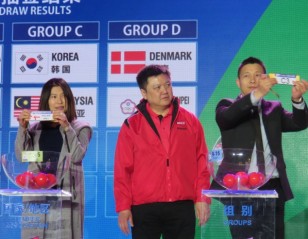
Powerhouses China, Japan in Group A of Thomas Cup 21 March 2016
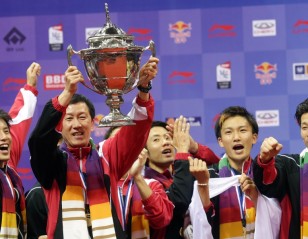
Defending Champions Japan Seeded 5th for Thomas Cup 4 March 2016
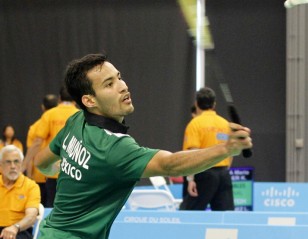
Mexico, New Zealand in Thomas Cup final round 23 February 2016

Indonesia, China Emerge Champions – Badminton Asia Championships finals 22 February 2016
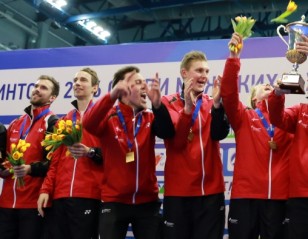
Denmark Unchallenged at the Top: European Men’s & Women’s Team Championships finals 22 February 2016
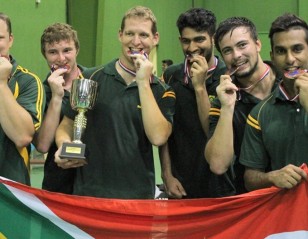
SA, Mauritius Crowned Champions: Africa Continental Team Championships finals 21 February 2016
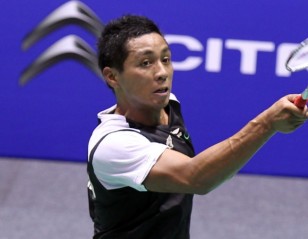
New Zealand, Australia Reign Supreme: Oceania Men’s & Women’s Team Championships finals 21 February 2016
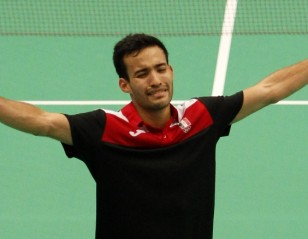
Mexico Clinch Men’s Title: Pan Am Team Continental Championships finals 21 February 2016
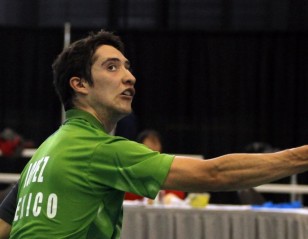
Mexico, Canada in Final: Pan Am Team Continental Championships – Day 3 20 February 2016
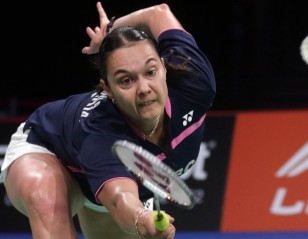
Bulgaria, Spain in Last-Four: European Men’s & Women’s Team Championships quarter-finals 20 February 2016
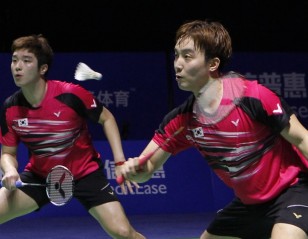
China Knocked Out – Badminton Asia Team Championships quarter-finals 20 February 2016
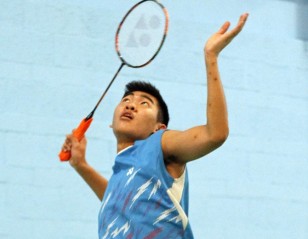
Garrido, Ho-Shue Shine: Pan Am Team Continental Championships – Day 2 19 February 2016
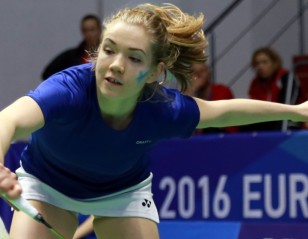
Finland in Quarter-finals: European Men’s & Women’s Team Championships – Day 3 19 February 2016
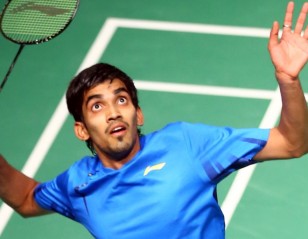
India Stun China: Badminton Asia Team Championships – Day 4 19 February 2016
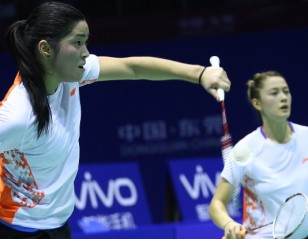
Australia Win Exciting Final – Oceania Mixed Team Championships 18 February 2016
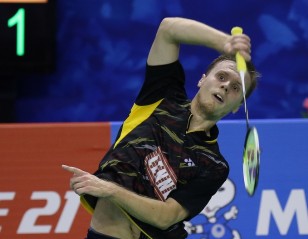
Estonia Edge Past Hungary: European Men’s & Women’s Team Championships – Day... 18 February 2016
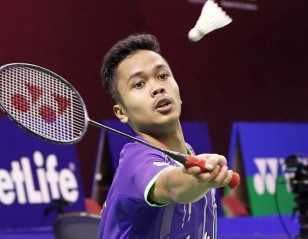
Indonesia Beat Chinese Taipei: Badminton Asia Team Championships – Day 3 18 February 2016
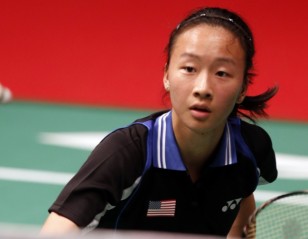
Iris Wang Guides USA to Win: Pan Am Team Continental Championships –... 18 February 2016
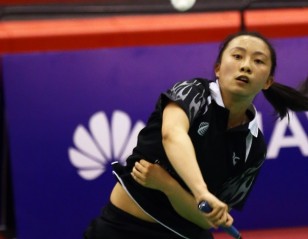
Easy for New Zealand: Oceania Mixed Team Championships – Day 2 17 February 2016
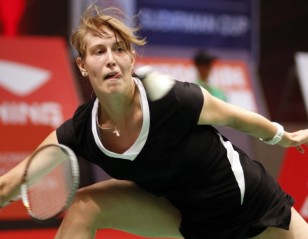
Narrow Win for Ukraine – European Men’s & Women’s Team Championships –... 17 February 2016
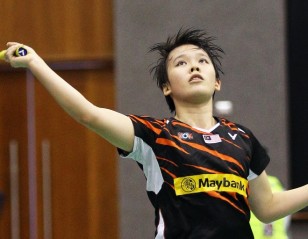
Close Shave for Malaysia: Badminton Asia Team Championships – Day 2 17 February 2016

Strong Start for New Caledonia – Oceania Mixed Team Championships Day 1 16 February 2016
